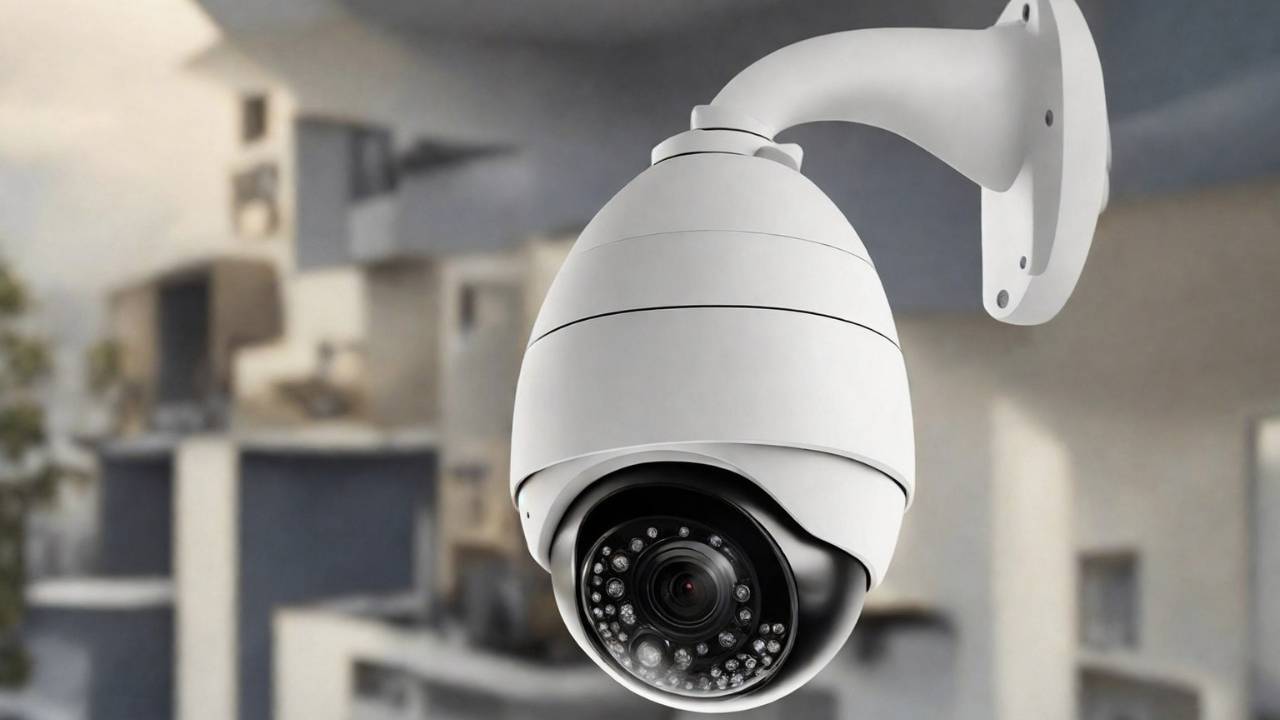
13 minutes, 8 seconds
-3.5K Views 0 Comments 0 Likes

For beauty enterprises to be successful, robust security measures are crucial. From protecting sensitive client data to safeguarding inventory, security concerns should be a top priority for beauty professionals. Implementing effective security strategies not only protects the business but also builds trust with clients, enhancing their overall experience.
Beauty enterprises, whether large salons or boutique operations, face unique challenges in ensuring safety and privacy. Digital threats such as data breaches and physical risks like theft necessitate a comprehensive approach to security. Understanding these challenges and being proactive in addressing them can significantly reduce vulnerabilities.
Adopting a layered security approach can provide beauty businesses with the protection needed to thrive. This involves educating employees on best practices, utilising secure technology solutions, and implementing rigorous access controls. Each of these elements plays a critical role in establishing a secure environment where beauty enterprises can flourish.
Cyber security in beauty salons is critical to protect client data and ensure business integrity. Key areas of focus include understanding potential threats, enforcing strong password protocols, and ensuring robust data protection measures are in place.
Beauty salons hold substantial amounts of personal and financial data. These establishments are increasingly becoming targets for cyber threats such as phishing and ransomware. Phishing attacks often attempt to trick employees into providing sensitive information.
Ransomware can lock important systems unless a ransom is paid.
Vulnerabilities can arise from outdated software or insufficient user training. Salons must routinely update their software and educate staff about secure online behaviours. Regular vulnerability assessments can help identify and rectify weak points before they are exploited by malicious actors.
Strong password policies are crucial to protect beauty salons from unauthorised access. Employees should use complex passwords that combine letters, numbers, and symbols. It is encouraged to avoid using easily guessed information such as birthdays or common words.
Salons can implement multifactor authentication (MFA) to add an additional layer of security. Regular updates to passwords and a robust password management system can further minimise risks. Enforcing strict policies around password sharing and ensuring employees are aware of potential dangers keep the business more secure.
Data protection is paramount in maintaining client trust and complying with legal obligations. Beauty salons should encrypt sensitive data both in transit and at rest. This guarded approach minimises the risk of interception and unauthorised access.
Privacy policies must be clearly communicated to clients, detailing how their information is used and protected. Regular audits and compliance checks ensure adherence to data protection laws and standards. By prioritising data security, salons can protect their reputation and prevent costly data breaches.
In the landscape of beauty enterprises, protecting against online threats is crucial for maintaining trust and security. This includes defending against phishing attacks, ransomware, denial of service incidents, and ensuring compliance with cyber certifications.
Phishing attacks often involve deceptive emails that trick employees into revealing sensitive information. Businesses should invest in regular staff training to recognise fraudulent messages. Implementing email filters and security protocols helps to block suspicious content before it reaches the inbox.
Ransomware requires particular attention due to its potential to cripple operations. Frequent backups and robust antivirus software are recommended. Recovery plans should be in place to ensure a swift response, minimising downtime and data loss.
Denial of Service (DDoS) attacks aim to overwhelm an enterprise's network, disrupting normal service. To safeguard against this, deploying DDoS protection services is essential.
These services monitor traffic and detect abnormal patterns. Load balancing and redundancy help sustain operations by distributing traffic. Enterprises should also ensure that network infrastructure is capable of handling unexpected surges. This blend of technologies reduces vulnerability to attacks and ensures consistent service availability.
Obtaining Cyber Essentials certification is an effective strategy for demonstrating commitment to cybersecurity. This certification helps businesses implement fundamental security practices. It includes ensuring firewall protection, secure configurations, and controlling who has access to data and services.
The certification process also encourages regular updates of security software and staying informed about potential threats. Compliance with these standards not only enhances protection but also inspires customer confidence and trust in the brand.
Operational security and IT infrastructure form the backbone of a flourishing beauty enterprise. By implementing robust access controls and malware prevention measures, companies can safeguard their business from both physical and cyber security risks.
To ensure stringent security, businesses must integrate both physical and digital access controls. Physical security solutions, like those provided by MJ Flood Security, such as CCTV systems and access control technology, help monitor and control entry points effectively.
On the digital side, deploying advanced authentication methods such as multi-factor authentication and encrypted access protocols can significantly reduce the risk of unauthorised access. Regularly updating and reviewing access permissions ensures that only authorised personnel have access, thereby fortifying the enterprise against security breaches.
Preventing malware infiltration is crucial for maintaining operational integrity. Beauty enterprises should employ comprehensive anti-malware software to detect and neutralise threats in real-time. Regular system updates and patch management are essential to prevent vulnerabilities.
In the event of a suspected breach, prompt incident response protocols must be in place. This includes isolating affected systems and conducting thorough forensic analysis to understand the breach's scope. Immediate action and detailed investigation can prevent further damage and ensure quicker recovery, safeguarding sensitive business and customer data.
Implementing vigilant staff behaviour and comprehensive cyber security programmes is crucial for beauty enterprises aiming to safeguard against digital threats. Focused training initiatives help employees recognise and mitigate risks, reducing vulnerabilities caused by human error.
Human error is a significant source of security breaches. To address this, tailored staff training sessions are essential. Employees must learn to identify phishing emails, avoid suspicious links, and understand password security.
Training often involves real-world simulations, boosting employees’ ability to respond to potential attacks. Consistent reminders and refreshers help retain their awareness. It is important to evaluate training effectiveness regularly, ensuring that content remains relevant to emerging cyber threats.
By fostering a culture of security consciousness, enterprises can reduce the likelihood of breaches. Engaging staff in interactive sessions increases retention. Investment in human-centred training materials pays off in enhanced cyber resilience.
The rise of remote and decentralised workforces presents unique challenges for cyber security. Remote staff training is a key solution. Flexible online modules allow employees to engage with training at their own pace, regardless of location.
Digital platforms provide the necessary tools for effective training delivery. They include engaging multimedia content that addresses various learning styles. Ensuring secure access to these training tools is vital. Enterprises should incorporate secure login measures and data protection protocols.
Regular updates to training content help keep remote employees informed about new threats. Utilising analytics, organisations can tailor these programmes to address specific knowledge gaps. Emphasising the importance of vigilance and accountability in a remote setting strengthens the organisation's cyber defences.
Ensuring a safe and hygienic environment in salons is crucial for both clients and staff. It involves the careful management of fire safety, the proper handling of electrical equipment, and maintaining high hygiene standards, especially during pampering sessions.
In salons, the presence of numerous electrical appliances necessitates stringent fire safety practices. Routine inspections should be conducted on fire extinguishers, smoke detectors, and escape routes to ensure they are fully operational.
Electrical equipment, such as hairdryers and styling irons, must be regularly checked for faults or frayed wires. Employees should be trained to handle electrical devices properly, including unplugging them when not in use and ensuring they are not near water sources.
Proper storage of flammable products, like hairsprays and certain cleaning agents, is essential. Salons should always have a clearly outlined evacuation plan. Informing all staff members about the fire safety protocol is crucial, minimising risks and improving readiness in case of an emergency.
Hygiene in salons is paramount to prevent infections and ensure a pleasant experience during pampering sessions. All tools, such as scissors, combs, and nail equipment, must undergo sterilisation after each use to prevent the spread of bacteria and fungi.
Surfaces where beauty treatments are performed, including chairs and tables, should be wiped with disinfectant regularly. Staff are encouraged to wash their hands thoroughly between clients and use gloves when necessary, especially when handling chemicals.
Salon towels, gowns, and other reusable items must be laundered at high temperatures after each client. This practice helps maintain cleanliness, protecting both clients and staff from potential health hazards. Proper hygiene reflects a salon's commitment to client safety and well-being.
In the beauty industry, robust security is essential, not optional.
Investing in advanced technologies like biometric access and AI surveillance protects assets and reassures clients. Training staff in security awareness fosters vigilance and mitigates risks. Partnering with professional security providers ensures strategies are up to date, allowing businesses to focus on delivering exceptional services.
A comprehensive security strategy not only safeguards the brand's integrity but also supports continued success in a competitive market.
security cctv cyber threat password data protection beauty business ransomware digital access control hygiene cybersecurity


